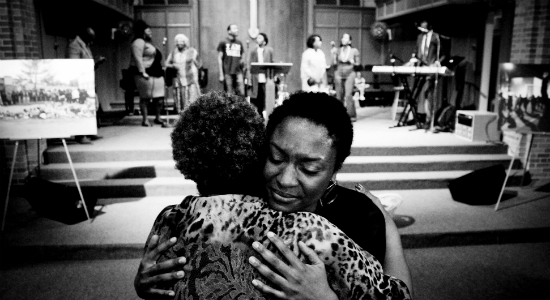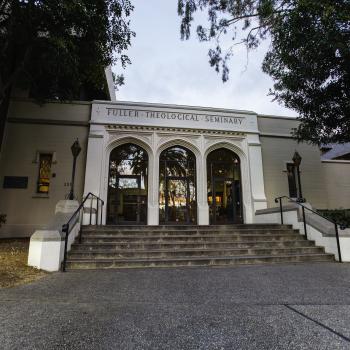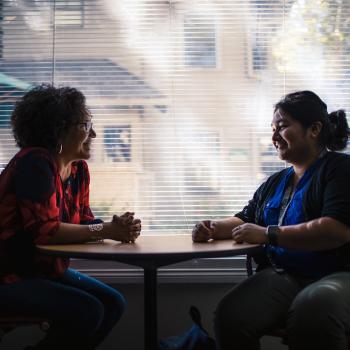by Jeanelle E. Austin, Director of Operations at the William E. Pannell Center for African American Church Studies
This is an abbreviated version of a blog originally posted on Fuller Theological Seminary’s homepage. To read the whole story, click here.
On Thursday, October 8, 2015, 25 young adults and a few facilitators gathered in St. Louis, Missouri, to wrestle with the topic of racial justice by engaging the people and space of Ferguson. We became pilgrims as part of the Episcopal Young Adult Pilgrimage to Ferguson, funded by a grant awarded to the Episcopal Church General Convention/Domestic and Foreign Missionary Society (DFMS) by the Constable Fund.
We engaged several community leaders and clergy on our pilgrimage. Rev. Starsky Wilson, a guest on our Saturday afternoon panel, is one I remember well. When I posed a question on racial reconciliation, this was part of his response:
Old Testament atonement is much preferential for me to New Testament reconciliation. Old Testament atonement, when you did something wrong, you made an offering such that the relationship was made right between you and the person you wronged. New Testament reconciliation, God was in Christ reconciling the world to God’s self. The person who had been wronged, who is God, actually makes the sacrifice for the sake of the relationship being right again. Such that, the obligation for reconciliation in these moments goes to young black people who are shot dead in the streets every 24 hours.
Rev. Starsky later suggested that racial justice—seeking out social equity between equals—is a precursor to any form of racial reconciliation. His perspective is full of truth, yet it becomes a stumbling block for Christian communities who want the unity without social equity.

In Ferguson, the struggle for racial justice manifests as the people versus the systems of policing, housing, education, prison, job opportunities, and more. Without social equity in these areas, Ferguson is hard pressed to experience racial reconciliation. As I think about our community at Fuller, we are not exempt from the impact of systemic racism. The root causes of the Ferguson uprising are not unique to that context, and if we are not careful to address the social (and theological) disparities within Fuller and our surrounding communities, we will continue to breed the same frustrations among marginalized people.
There is hope for change. Ferguson taught me that in the midst of hopelessness, hope can be present and tangible. This lesson I offer to the Fuller community. As we seek to engage America’s dilemma with race, we cannot overlook that our institution (like many institutions in America) is part of the problem. Fuller Seminary is a product of its time, shaped by culture. Deeply embedded in the foundation of Fuller are the ideologies of whiteness and patriarchy. Yes, we have done much work to combat those ideologies, but we are still a long way from experiencing expressions of racial reconciliation because we have not achieved racial justice within our own walls. The good news is that God, who we claim saves us and others as individuals, can save us as an institution and community, but we must be faithful to live into that gospel truth and repent (change our ways) as an institution.














